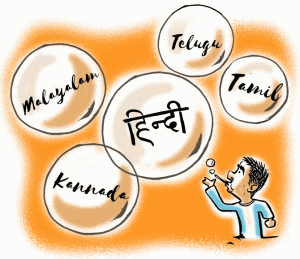Another controversy has shaken the political landscape of Maharashtra, as opposition leader Uddhav Thackeray condemns the imposition of Hindi in the state’s education system. This development has reignited the decades-old debate surrounding linguistic identity and cultural preservation in one of India’s most economically vital states. The former Chief Minister’s strong opposition to the government’s educational policies has created ripples across political circles, highlighting the deep-rooted concerns about maintaining Maharashtra’s distinct cultural character.
The controversy centres around allegations that the current Maharashtra government is systematically promoting Hindi at the expense of regional languages, particularly affecting Mumbai’s unique cosmopolitan identity. Uddhav Thackeray condemns Hindi imposition not merely as an educational policy shift but as a fundamental attack on the state’s linguistic heritage and autonomous decision-making capabilities.
Mumbai, often called the financial capital of India, has historically been a melting pot of cultures and languages. The city’s identity has been carefully cultivated over decades, balancing its role as a commercial hub while maintaining its Marathi roots and multicultural essence. When Uddhav Thackeray condemns Hindi imposition, he specifically highlights how this policy threatens to undermine the delicate linguistic balance that has made Mumbai a global metropolis.

Also read: AAP condemns Hindi Imposition in Maharashtra
The opposition leader’s concerns extend beyond mere language preferences. The push for Hindi in state education represents what critics argue is a broader attempt to homogenise India’s diverse linguistic landscape. This standardisation, they contend, could erode the unique characteristics that have made different regions economically and culturally vibrant. The debate has particular significance in Maharashtra, where language has historically been intertwined with political identity and regional pride.
Mumbai’s educational institutions have long been recognised for their diversity and excellence, accommodating students from various linguistic backgrounds while ensuring strong foundations in local languages. The current policy changes have raised questions about whether this inclusive approach will continue or give way to a more centralised linguistic framework.
The language controversy has created an interesting political dynamic as Uddhav Thackeray condemns Hindi imposition, finding himself aligned with his cousin Raj Thackeray’s long-standing position on linguistic rights. This convergence of views between the two Thackeray leaders, despite their political differences, underscores the seriousness of the issue and its potential to transcend party lines.
Raj Thackeray, known for his vocal advocacy of Marathi rights and opposition to what he perceives as linguistic imperialism, has consistently opposed policies that could marginalise regional languages. The fact that Uddhav Thackeray condemns Hindi imposition using similar arguments suggests that this issue may unite various factions within Maharashtra’s political spectrum, regardless of their other disagreements.
This alignment also reflects broader concerns about federalism and state autonomy in educational policymaking. When regional leaders from different political backgrounds share similar concerns, it often indicates that the issue touches on fundamental principles of governance and cultural preservation that transcend partisan politics.
 The implications of this language policy extend far beyond political rhetoric. When Uddhav Thackeray condemns Hindi imposition, he raises legitimate questions about the practical impact on Maharashtra’s educational ecosystem. The state has built its educational framework around a multilingual approach that has served its diverse population effectively for decades.
The implications of this language policy extend far beyond political rhetoric. When Uddhav Thackeray condemns Hindi imposition, he raises legitimate questions about the practical impact on Maharashtra’s educational ecosystem. The state has built its educational framework around a multilingual approach that has served its diverse population effectively for decades.
Teachers, students, and parents are now grappling with uncertainty about how these policy changes will affect classroom instruction, examination systems, and long-term career prospects. The educational community has expressed concerns about the sudden shift in linguistic priorities and its potential impact on learning outcomes.
Furthermore, the controversy highlights the complex relationship between language and economic opportunities. Maharashtra’s economy thrives on its ability to attract talent from across India and the world. Any policy that could potentially create linguistic barriers or reduce the state’s appeal to diverse populations may have unintended economic consequences.
As Uddhav Thackeray condemns Hindi imposition, the political ramifications extend beyond Maharashtra’s borders. This controversy has reignited debates about the role of Hindi as a national language versus the constitutional recognition of India’s linguistic diversity. The opposition leader’s stance resonates with similar concerns expressed by political leaders in other non-Hindi-speaking states.
The timing of this controversy is particularly significant, coming at a period when questions about federalism and state rights are prominent in national discourse. When prominent leaders like Uddhav Thackeray condemn Hindi imposition, they are essentially challenging the balance of power between central and state governments in educational policymaking.


Maharashtra’s rich literary tradition, performing arts, and cultural practices are deeply intertwined with its linguistic heritage. Any policy that potentially weakens this connection raises questions about the long-term preservation of the state’s cultural distinctiveness.
The ongoing debate sparked by Uddhav Thackeray’s condemnation of Hindi imposition will likely have lasting implications for educational policy in Maharashtra and potentially influence similar discussions in other states. As this controversy unfolds, it will be crucial to monitor how the government responds to these concerns and whether compromises can be found that address both national integration goals and regional identity preservation.
The resolution of this issue will serve as an important precedent for how India navigates the complex relationship between linguistic diversity and national unity in its educational policies. The outcome may well influence similar debates in other states facing comparable challenges in balancing local and national linguistic priorities.
Chat controls

